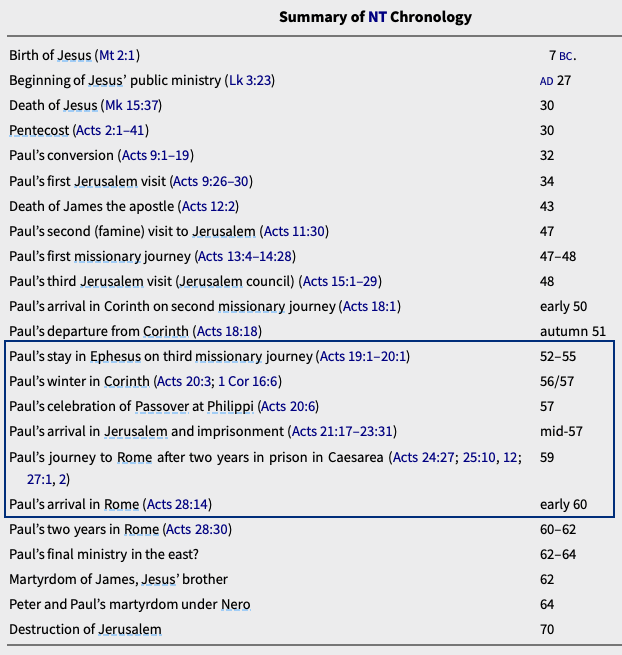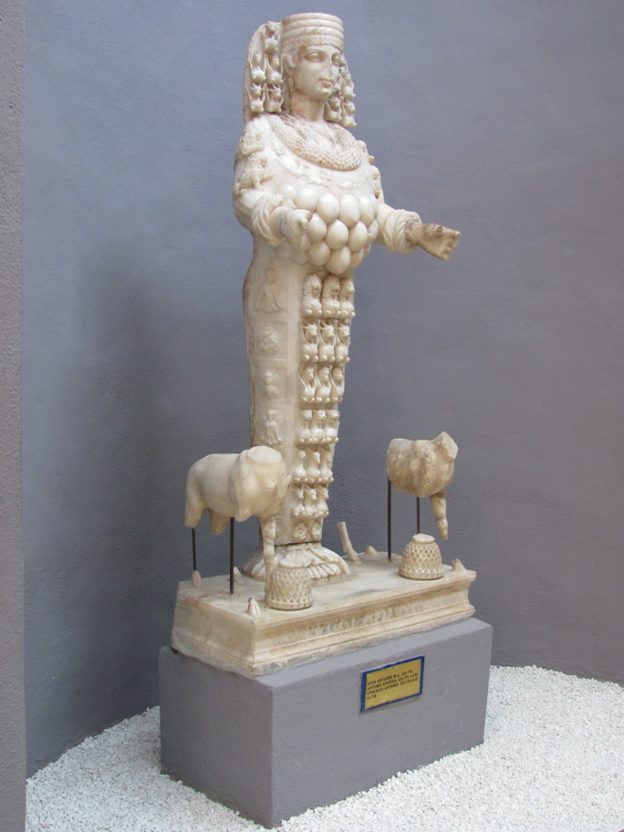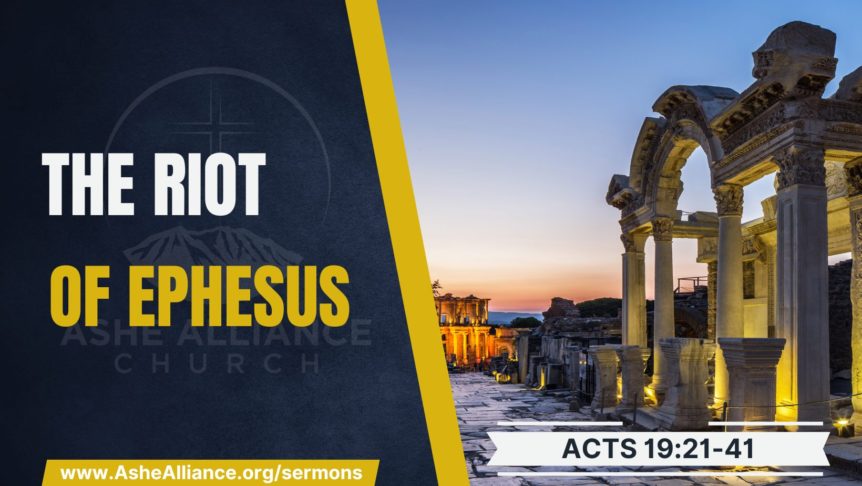LISTEN
WATCH
Main Idea
The excellence of your conduct is the platform for your witness.
When I first joined OCC, there was a saying everyone kept repeating, which was, “The excellence of our work is the platform for our witness.” I don’t think that originated in OCC. In fact, I think it is used throughout Samaritan’s Purse, and it is absolutely true. When disaster strikes and SP comes to mud out houses, build new ones, or set up a field hospital to tend to the wounded, the excellence of their work is the vehicle in which they get the opportunity to share the gospel. It was the same way in my job at OCC. I worked on the business end of OCC in the International Logistics Department, and when we would travel into the country to meet with the volunteers, we would often meet with Clearing Agents and government officials who did not like non-profit organizations, because, sadly, many of them have been underhanded in the way they bring things into the country. They would lie on their packing lists or be untruthful in the reasons about the purpose of the goods. The word non-profit had a bad connotation in many countries we imported into, so we had to do our work with excellence. Our paperwork had to be top-notch, and we would invite these high-ranking officials to distribution events so they could witness first-hand what we were all about. The excellence of our work was the platform for our witness, or in this case, our ability to do ministry at all.
1 Peter 2:12 ESV
Keep your conduct among the Gentiles honorable, so that when they speak against you as evildoers, they may see your good deeds and glorify God on the day of visitation.
This is lived out in the text today as we look at the riot of Ephesus that erupted in response to Paul’s triumphant proclamation of the gospel throughout the entire region.
Outline
I – Beyond Ephesus
II – The Instigator
III – The Riot
IV – The Peacekeeper
V – Takeaways
I – Beyond Ephesus
Acts 19:21–22 ESV
Now after these events Paul resolved in the Spirit to pass through Macedonia and Achaia and go to Jerusalem, saying, “After I have been there, I must also see Rome.” And having sent into Macedonia two of his helpers, Timothy and Erastus, he himself stayed in Asia for a while.
Paul has plans
Paul is fully with the growing church in Ephesus. He had been there at least 2.5 years, likely 3, the longest he has ever stayed in a city.
Yet, he knew the gospel needed to advance, and the church needed to be nurtured, so he was also forward-thinking, planning to travel back through Macedonia (Philippi) and Achaia (Corinth) to Jerusalem, and then he wanted to visit the great city of Rome. And that is precisely what he did.

Paul delegates to trusted leaders
But not yet. He still had work to do, so he sent trustworthy men ahead of him, which is Paul living out the advice he would eventually give Timothy.
2 Timothy 2:2 ESV
and what you have heard from me in the presence of many witnesses entrust to faithful men, who will be able to teach others also.
• Timothy – Paul’s pupil and travel companion
• Erastus – not much known. He is Paul’s aide. He is mentioned in Rom. 16:23 and 2 Tim. 4:20 and could be the same person, but it was a common name, so we don’t know for sure.
While Paul is ministering in Ephesus, he keeps his eye on gospel expansion and equipping new leaders. He is leading through example of how to follow God’s leading while equipping others to become the leaders God intends them to be. As the saying goes, “In 100 years, all new people.” We are all stewards and will eventually hand the torch off to others, so it is wise to invest in others early on.
But now, the focus is squarely on the city of Ephesus and the riot that breaks out there.
II – The Instigator
Acts 19:23–27 ESV
About that time there arose no little disturbance concerning the Way. For a man named Demetrius, a silversmith, who made silver shrines of Artemis, brought no little business to the craftsmen. These he gathered together, with the workmen in similar trades, and said, “Men, you know that from this business we have our wealth. And you see and hear that not only in Ephesus but in almost all of Asia this Paul has persuaded and turned away a great many people, saying that gods made with hands are not gods. And there is danger not only that this trade of ours may come into disrepute but also that the temple of the great goddess Artemis may be counted as nothing, and that she may even be deposed from her magnificence, she whom all Asia and the world worship.”

Artemis worship was big business in Ephesus. Idols and shrines were a hot commodity. We love little trinkets and souvenirs when we visit places. How much more do you think they will sell will they sell when they are idols to be worshiped?
Demetrius’s Motives
• money
• position
• economic stabilization
• His reputation
• The reputation of his god
These aren’t necessarily things that are wrong to defend. I used to be a small business owner and wouldn’t want my livelihood to be jeopardized. There was a time when I lost my business during the economic crash in ‘08 and struggled to provide for my family. In fact, Kelly was the primary breadwinner at that time. I wouldn’t wish financial distress on anyone. The Temple of Artemis attracted thousands of pilgrims to Ephesus each year, and the silversmiths had jobs because of it, which helped fuel the economy to make the city prosperous.
And I’ll even give Demetrius the benefit of the doubt and say he had the right motives to defend the reputation of his god (though his fidelity needed to be reoriented to the One True God). We all should be willing to defend the name of Christ where He is being blasphemed. So, I am willing to grant Demetrius the right motives. The issue comes with how he responded in the community.
Others are drawn in
They say that misery loves company. Evidently, so does a man scorned.
Even if Demetrius had pure motives, he dropped the ball when he acted on them.
He gathered other members of the silversmith guild to complain and scheme. And that group of angry idol-makers grew into a violent mob that started a riot in the city.
Demetrius was the match that lit the forest fire.
History shows us that when fallen human hearts are triggered, the natural outpour is rage, rioting, and destruction. Just think back to riots in recent memory, like the ones after the deaths of George Floyd in Minneapolis and Jacob Blake in Kenosha, Wisconsin. How many here remember seeing the news reports of ‘peaceful protests’ while buildings were literally on fire behind them? Because of the sensitive nature of the events, they were trying to downplay the reaction, but the reaction was rage, screaming, looting, the destruction of property, threats against the police, and deaths.
Even in clear cases of injustice, the response to it should not be equally unjust and sinful. Trying to silence the opposition through outrage, violence, and brute force has always been a human response, and yet, it has never been the answer to the problem. I remember watching those newscasts, thinking about how dark the world was getting, but then I remember remembering this very passage of scripture and was put at peace a little, knowing that the world wasn’t necessarily getting darker and out of control. This is the way fallen humans have reacted for thousands of years. This was just another instance.
If there is a wrong way, there must be a right way. So, let’s continue and see if we can put that logic to the test.
III – The Riot
Acts 19:28–34 ESV
When they heard this they were enraged and were crying out, “Great is Artemis of the Ephesians!” So the city was filled with the confusion, and they rushed together into the theater, dragging with them Gaius and Aristarchus, Macedonians who were Paul’s companions in travel. But when Paul wished to go in among the crowd, the disciples would not let him. And even some of the Asiarchs, who were friends of his, sent to him and were urging him not to venture into the theater. Now some cried out one thing, some another, for the assembly was in confusion, and most of them did not know why they had come together. Some of the crowd prompted Alexander, whom the Jews had put forward. And Alexander, motioning with his hand, wanted to make a defense to the crowd. But when they recognized that he was a Jew, for about two hours they all cried out with one voice, “Great is Artemis of the Ephesians!”
The riot takes place in the streets but is quickly moved to the famous theater of Ephesus.
Uncontrolled Rage
Rage is when you get irrationally angry and defiant, wanting to uncage your emotions and lash out.
Often, the first thing that is unleashed is your tongue. You yell, you scream, you stomp your feet. As the source of your anger tries to reply to your outburst, you scream louder, trying to either drown out his voice or shut him down entirely by repeatedly yelling in his face. You may even hurl threats or slander him to get him to back down. Look at what the mob did. They started out yelling, and when Alexander (A Jew who seemed sympathetic to the Christians) tried to address the crowd, they shouted the same sentence for two hours: “Great is Artemis of the Ephesians!”
In many cases, part of that rage includes an escalation to physical violence: capturing a few of Paul’s associates and dragging them in front of the mob.
This was one giant pride flare, all in the name of their god, and all her followers had brought their pitchforks and torches to destroy the source of their rage.
Widespread Confusion
When people act this way, it will always draw a crowd.
It will repulse some, intrigue others, and engage many more, especially when a large crowd acts this way. People will get caught up in the excitement and emotion of the movement and join in without even realizing what they are fighting against. Twice, we are told people were confused over the riot.
Uncontrolled rage, speech, and violence are the tools of unredeemed, dead hearts. This is a faulty platform for any meaningful discussion, much less for the gospel itself. To act this way is to bring reproach on the name of Christ.
A fruit of the Spirit is self-control (Gal. 5:22-23), and God is not a God of confusion, but of peace (1 Cor. 14:33). Christians are to act differently. We have another platform altogether.
Focused care and concern
This is the primary characteristic demonstrated by the believers.
Take a look at the reactions of the Christians in this passage. Paul wanted to rush in. I’m sure he wanted to address the crowd, but I’m also sure he wanted to rescue his Macedonian friends. The disciples flatly refused to let Paul go into the theater. It was his blood they wanted, so they tried to protect their mentor and friend.
Even the Asiarchs (Civil officials in Ephesus) kept Paul from going in.
There is a clear distinction to how one encounters opposition. Mob rule will always seek to win through intimidation, violence, confusion, and brute force. The Christian will prevail through the gospel going forth and changing hearts that will produce the fruit of the Spirit.
Paul and the other disciples never reacted out of rage, resorting to violence and intimidation tactics. They lived out the virtues and proclaimed the truths of God’s Kingdom.
Now, let’s see how this all ends.
IV- The Peacekeeper
Acts 19:35–41 ESV
And when the town clerk had quieted the crowd, he said, “Men of Ephesus, who is there who does not know that the city of the Ephesians is temple keeper of the great Artemis, and of the sacred stone that fell from the sky? Seeing then that these things cannot be denied, you ought to be quiet and do nothing rash. For you have brought these men here who are neither sacrilegious nor blasphemers of our goddess. If therefore Demetrius and the craftsmen with him have a complaint against anyone, the courts are open, and there are proconsuls. Let them bring charges against one another. But if you seek anything further, it shall be settled in the regular assembly. For we really are in danger of being charged with rioting today, since there is no cause that we can give to justify this commotion.” And when he had said these things, he dismissed the assembly.
Calming the crowd
Enter the Town Clerk. Evidently, he holds power in the city and has the respect of the people because they finally quiet down and listen to what he has to say.
Don’t miss the comedic relief happening here. The Town Clerk calmed the crowd by reiterating confidence in something that didn’t happen. But he knew what provoked the crowd and what would calm them down. He appealed to their sense of pride and told them, “Hey, these guys don’t know what they’re talking about. You know what’s true about Artemis and the sacred sky stone. It’s undeniable, so chill out and calm down, will ya?”
Paul poked their pride in a provoking way over the years, and this wise city official knew how to utilize their pride to get them back under control.
Recognition of innocence
Now, he didn’t just say this to coddle the crowd. The man actually had an important point to make.
While the people didn’t like what Paul was proclaiming, and they hated how the entire province was turning away from Artemis to Christ, he hadn’t done anything wrong! Paul and the believers in the city were not sacrilegious; they did not blaspheme Artemis and have done nothing deserving this type of reaction. In fact, the Clerk confirmed that the people of Ephesus were in the wrong and in danger of judicial punishment! Rome had full authority to bring in the military to resolve the conflict if necessary.
They had destroyed their platform, and this man had emphasized the strength of the believers’ platform.
Perhaps during Paul’s time there, he had taught them Jesus’s words from Matthew 10:
Matthew 10:16–20 ESV
“Behold, I am sending you out as sheep in the midst of wolves, so be wise as serpents and innocent as doves.”
and again:
1 Peter 2:12 ESV
Keep your conduct among the Gentiles honorable, so that when they speak against you as evildoers, they may see your good deeds and glorify God on the day of visitation.
The excellence of your conduct is the platform for your witness.
So, let’s now apply this to ourselves.
V- Takeaways
- Recognize what the world values and how the world operates
- Stand firm by living out Kingdom virtues and proclaim Kingdom truths as Paul did
- Seek the good of others
- Let your Christian conduct be the platform for your witness –
Phil. 2:15-16 CSB
so that you may be blameless and pure, children of God who are faultless in a crooked and perverted generation, among whom you shine like stars in the world, by holding firm to the word of life.
The world will take notice of how you carry yourself and react to worldly circumstances.
When they look at you, what will they see?
